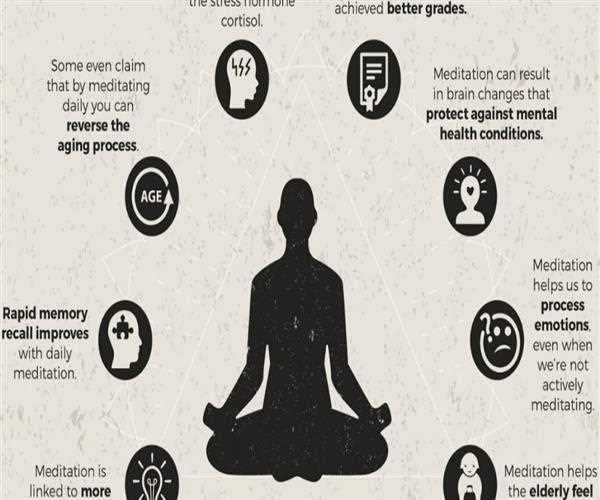Meditation is a mind-body practice that has been around for centuries. It involves focusing your attention on the present moment, without judgment. There are many different types of meditation, but they all share the same goal of training your mind to be more calm, focused, and aware.
There are many benefits to meditation, but the main one is stress reduction. When you meditate, you are essentially giving your mind a break from the constant chatter of thoughts and worries. This can help to lower your heart rate, blood pressure, and cortisol levels. Meditation can also help to improve your mood, sleep quality, and overall sense of well-being.

In addition to stress reduction, meditation has also been shown to have a number of other benefits, including:
- Improved focus and concentration: Meditation can help you to train your mind to focus on the present moment, without getting distracted. This can be helpful in both your personal and professional life.
- Increased self-awareness: Meditation can help you to become more aware of your thoughts, feelings, and bodily sensations. This can help you to better understand yourself and your reactions to the world around you.
- Enhanced emotional regulation: Meditation can help you to learn how to manage your emotions in a healthy way. This can help you to cope with stress, anxiety, and other difficult emotions.
- Improved memory and cognitive function: Meditation has been shown to improve memory, attention, and other cognitive abilities. This can be helpful as you age or if you are experiencing cognitive decline.
- Reduced pain: Meditation can help to reduce pain by activating the body's natural pain-relieving mechanisms. This can be helpful for people with chronic pain or acute pain.
- Increased compassion and kindness: Meditation can help you to develop a more compassionate and kind attitude towards yourself and others. This can lead to improved relationships and a more fulfilling life.
If you are interested in trying meditation, there are many different resources available to help you get started. There are books, websites, and apps that can teach you the basics of meditation. You can also find meditation classes at your local yoga studio or community center.
Meditation is a simple practice that can have a profound impact on your life. If you are looking for a way to reduce stress, improve your mood, and boost your overall well-being, I encourage you to give meditation a try.
Here are some additional tips for getting started with meditation:
- Find a quiet place where you will not be interrupted.
- Sit in a comfortable position, either on the floor or in a chair.
- Close your eyes and focus on your breath.
- Notice the sensations of your breath as it enters and leaves your body.
- If your mind wanders, gently bring it back to your breath.
- There is no right or wrong way to meditate. Just do your best to focus on your breath and let go of any thoughts or worries that come into your mind.
- Start with short meditations of 5-10 minutes and gradually increase the length of your sessions as you become more comfortable.
Meditation is a journey, not a destination. There is no right or wrong way to meditate, and the most important thing is to find a practice that works for you. With regular practice, you will start to see the benefits of meditation in your own life.